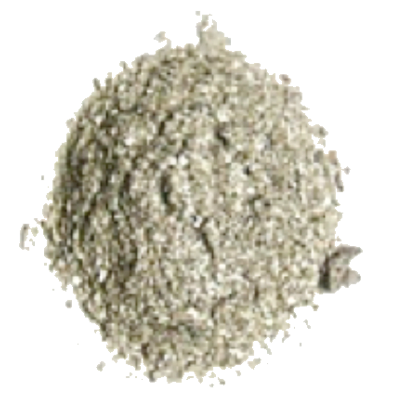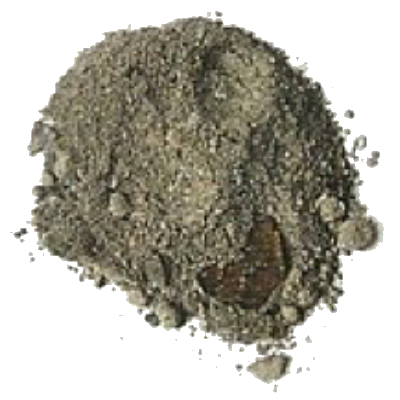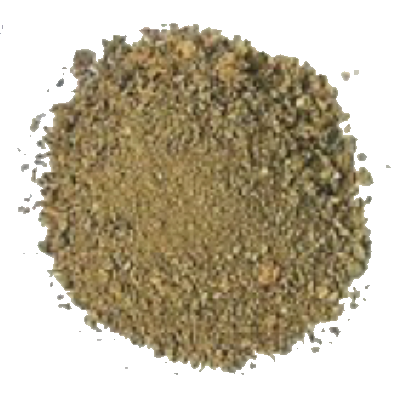Comparison
Processed waste types and output materials
The input material is organic waste of various types, with the addition of additional modules, it is possible to process some types of hazardous, liquid and hospital waste.


Mineral powder contains no harmful substances and can be deposited on conventional landfills or used as an admixture for concrete, roadway material, construction, and the like.
Other process products are water and CO2. Metal, glass and other non-degradable materials entering the process remain unchanged at the outlet and subsequently separated for further use and recycling.

Communal waste not segregated
Input: 9 kg
Output: 7 g, 17 ml

Waste from municipal compost
Input: 0.8 kg, 1 l
Output: 19 g, 15 ml

Wastes from slurry
Input: 1 kg, 1 l
Output: 18.1 g, 42 ml
Comparison
Comparison with available technologies. Pyrolysis, plasma and catalytic mineralization.
| Pyrolysis | Plasma | Catalytic mineralization | |
| Temperature | 800-1200 °C | 3000-10000 °C | 350-550 °C |
| Input segregation of materials | yes | yes | no |
| Disposal of hazardous waste | only after demanding modifications | only after demanding modifications | yes |
| Formation of Dioxin | yes | yes (reverse synthesis) | no |
| Energy intensity | high | very high | low |
| Operating costs | high | high | low |
| Recovery of collection raw materials | after demanding segregation | after demanding segregation | simple, after the process ends |
| Obtaining raw materials from process gases | not possible | not possible | simple, according to the content of the elements |
| Emission purity | only after the installation of additional equipment | only after the installation of additional equipment | very high, only CO2 and water vapor are produced |
| Thermal and electrical energy recovery | yes, after installing the additional unit and the generator | yes, after installing the additional unit and the generator | yes, generators are part of the device |
| Extent of processing of different types of waste | limited | limited | almost unlimited |
| Building demand | high | very high | low |
| Claims on a built-up area | large, due to the need for storage and segregation | large, due to the need for storage and segregation | minimum handling surfaces |
